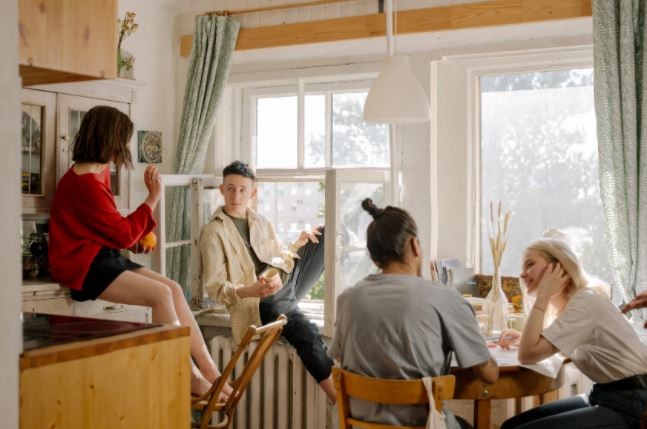Following Tuesday's announcement of the stricter coronavirus measures in Belgium, the Crisis Centre gave some tips on how people can safely receive the four guests they are now allowed to invite in their homes.
From Friday 9 October, people can still have three close contacts - besides the people living under the same roof - per month. "Additionally, it is also possible to receive up to four visitors at home," virologist and interfederal Covid-19 spokesperson Steven Van Gucht said during a press conference on Wednesday.
"These visitors do not necessarily belong to your circle of close contacts. This means you must keep a sufficient distance from them." This can be done safely, all the while respecting the six golden rules, according to the Crisis Centre.
"In essence, it is best to follow the same rules that are also in place for restaurants," Van Gucht said.
Related News
- Belgian average nears 2,500 new coronavirus cases per day
- Brussels ‘on the edge of code red’, expert warns
- Belgium tightens measures: bubbles shrink, bars close early
"Make a good planning in advance, and make good appointments with your guests," he said, adding that it is also possible to mention your house rules immediately when inviting guests.
"Remind your guests to stay at home if they have a cold, and definitely if they have had a high-risk contact, and actually should be in quarantine. Remind them not to forget their face mask either."
Greet each other from a distance, 1.5 metres remains the norm, both indoors and outdoors. "Do not shake hands, hug or kiss. Rather, give each other an elbow or a foot" Van Gucht said. "Taking a bow can also be very elegant."
Additionally, guests should take off their own coats, go straight to their own place, and not hang around in the hallway.
"Give everyone a fixed seat, on a chair or on the sofa, and make sure there is a 1.5 metres distance between them," he said, adding that the distance rules do not apply to people from the same household or from the same bubble.
"Do not take off your mask until you are sitting down. Then put it away in a box or envelope," Van Gucht said, adding that the host should try to always have such a box or envelope for masks nearby, so that the masks are not constantly lying on the table.
Everyone should disinfect their hands once they have taken a seat and removed their masks. "In practice, this means that next to the bottle of wine and water, there should now also be a bottle of hand gel."
Whoever serves the guests should wear a face mask, just like in restaurants. "As a guest, it is best to stay in your seat as much as possible," he said. "It may seem weird, but also do not help with the cleaning afterwards."
Avoid sharing plates and bowls, such as for crisps or other snacks. "It is better to have a separate bowl or plate per guest. Mark the glasses so everyone recognises their own glass easily," Van Gucht said.
Do not offer food in buffet form, but serve your guests separately. "Wash your hands before serving, and provide disposable serviettes instead of fabric ones."
The less background noise, the better. "Then your guests do not have to speak too loudly, because we produce more drops when talking loudly, yelling or singing," he said. "If there is music, play it softly."
Put your face mask back on before you get up from your seat to go to the bathroom. "Leave the toilet down when flushing. As a host, provide hand gel and soap in the toilet."
It is still safer to receive people outdoors, but the autumn weather is making that less and less easy. "That is why good ventilation indoor is important," said Van Gucht. "For example, put two windows on tilt, preferably facing each other. But avoid draughts, of course."
Lastly, keep the contact details of your guests, so you can offer them to the contact tracers if it turns out to be necessary.
Maïthé Chini
The Brussels Times

